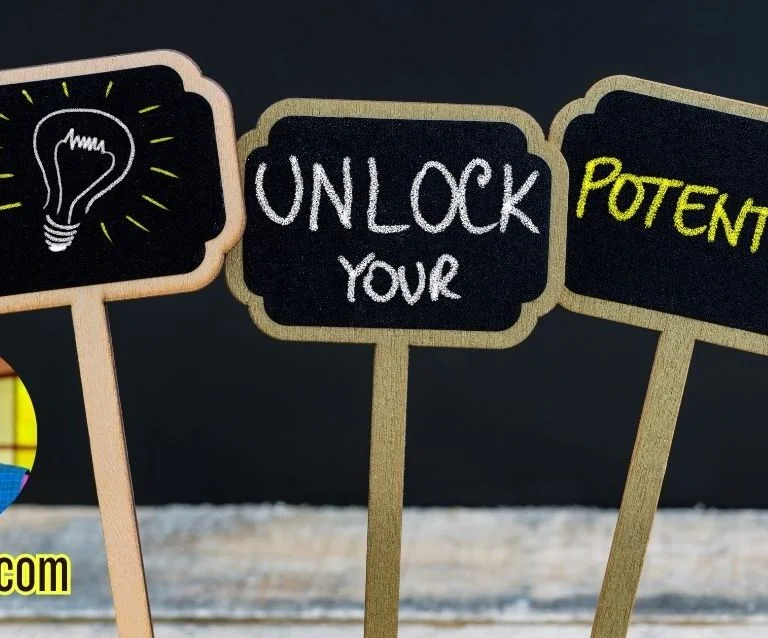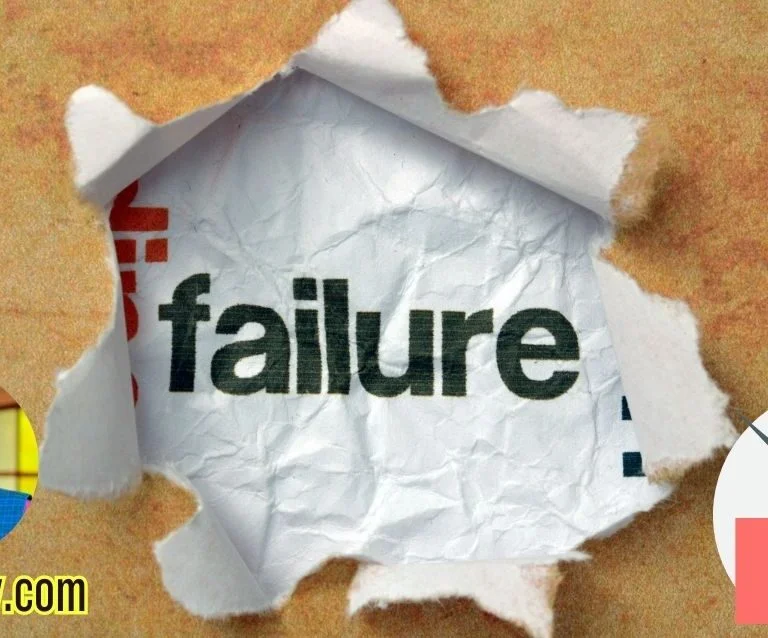Self-mastery is a cornerstone of personal development
Self-mastery is a cornerstone of personal development, representing the ability to exert control over one’s thoughts, emotions, and actions. The concept can be likened to the ancient adage, “I am indeed a king because I know how to rule myself,” highlighting the idea that true power lies in the ability to govern oneself. This journey towards becoming the ruler of one’s own life is about much more than mere control; it encompasses deep understanding, unwavering discipline, and continuous growth.
The essence of self-mastery is akin to effective leadership. Just as a king leads his kingdom with wisdom and discernment, individuals must guide their lives with similar virtues. This form of leadership is internal and personal, requiring one to navigate through life’s challenges with a balanced and mindful approach. It emphasizes the importance of not being swayed by external circumstances but rather maintaining a steadfast commitment to one’s values and goals.
Embarking on the path of self-mastery involves a relentless pursuit of self-awareness. By understanding one’s strengths and weaknesses, individuals can craft strategies to leverage their capabilities while mitigating their shortcomings. This heightened sense of awareness fosters a greater degree of discipline, enabling one to make choices that align with long-term objectives rather than succumbing to fleeting impulses. In essence, self-mastery transforms obstacles into opportunities for growth.
Discipline is another critical facet of self-mastery. It is through disciplined efforts that one can achieve a state of consistency and reliability. This steadfast dedication to self-improvement is what separates those who thrive from those who merely survive. By cultivating habits that reinforce personal values and aspirations, individuals can create a sustainable framework for growth and success.
As we delve deeper into this motivational journey towards self-governance, it is important to remember that self-mastery is not a destination but a continuous process of evolution. It is a dynamic interplay of understanding, discipline, and growth that propels individuals towards their highest potential. Join us as we explore the various dimensions of self-mastery and uncover the profound impact it can have on personal development.
Understanding Self-Awareness
Self-awareness stands as the cornerstone of self-mastery. It is the conscious knowledge of one’s own character, feelings, motives, and desires. Cultivating self-awareness is paramount because it allows individuals to understand their intrinsic strengths and weaknesses while also recognizing their core values and passions. This understanding forms the bedrock for effective self-regulation and sound decision-making.
Diversifying the techniques for enhancing self-awareness can profoundly impact an individual’s journey toward self-mastery. Mindfulness is one such technique. Engaging in mindfulness practices involves being present and fully engaged with the current moment, thereby fostering a greater understanding of one’s emotions and thoughts. This heightened state of awareness can pave the way for introspection—an in-depth exploration of one’s inner self. Daily introspection, whether through journaling or quiet reflection, can illuminate aspects of one’s personality and behavioral patterns that might otherwise go unnoticed.
In addition to introspection, seeking feedback from others is crucial. Constructive feedback from trusted friends, family, and colleagues can provide valuable perspectives on how one is perceived externally. This external viewpoint, when juxtaposed with one’s internal perception, can offer a more comprehensive understanding of oneself.
Understanding one’s strengths and weaknesses is instrumental in navigating life’s challenges with poise. Strengths, when leveraged, can propel individuals toward their goals with confidence, while acknowledging weaknesses can provide opportunities for growth and development. Knowing one’s core values and passions further enriches this self-awareness journey. Values define what is fundamentally important to an individual, guiding their choices and behavior, whereas passions interlace these values with intrinsic motivation, facilitating vibrant and purposeful living.
Through mindful practices, introspection, and feedback, cultivating self-awareness becomes a transformative process, enriching one’s capacity for self-regulation and informed decision-making. Mastering the art of understanding oneself is unequivocally the first step in the motivational journey to self-mastery, enabling individuals to rule themselves with insight and wisdom.
The Power of Self-Discipline
Self-discipline serves as the cornerstone of personal mastery, allowing individuals to steer their lives with purpose and intention. It stands as an indispensable trait for those who seek to effectively govern themselves, laying a robust foundation for the attainment of long-term goals and the maintenance of unwavering consistency in their pursuits.
By fostering self-discipline, one equips themselves with the tools needed to navigate life’s challenges and distractions with steadfast resolve. The capability to adhere to one’s commitments, even in the face of difficulties or temptations, distinguishes the disciplined individual from the rest. This virtue ensures that short-term pleasures do not derail long-term aspirations, thus propelling a person towards sustained success and personal growth.
The journey to cultivate self-discipline begins with setting clear, achievable goals. These goals act as guiding stars, providing a clear direction and purpose. Without defined objectives, efforts can become scattered and ineffective. Writing down goals and breaking them into smaller, manageable tasks enhances focus and makes the path to achievement more visible and attainable.
Creating daily routines is another practical strategy for developing self-discipline. Routines instill a sense of order and predictability, making it easier to adhere to one’s commitments. By structuring one’s day with designated times for productive activities, personal care, and leisure, a balance is struck that fosters sustained discipline. Implementing routines can transform potentially chaotic days into structured and productive periods.
Practicing delayed gratification is perhaps one of the most profound exercises in self-discipline. It involves resisting immediate temptations in favor of long-term rewards. This principle can be applied in various aspects of life, from dietary choices to financial decisions. Cultivating the patience to wait for more significant benefits rather than succumbing to instant desires is a testament to one’s self-control and strategic thinking.
In essence, self-discipline empowers individuals to make conscious, deliberate choices that align with their higher objectives. By setting clear goals, establishing routines, and practicing delayed gratification, one can develop the self-discipline necessary to rule oneself effectively, paving the way for a life of consistency, achievement, and personal fulfillment.
Accepting Emotional Intelligence
Emotional intelligence is a cornerstone of self-mastery and self-rulership. It involves a sophisticated understanding and management of one’s own emotions and the emotions of others. By honing emotional intelligence, individuals can foster more harmonious relationships and lead a balanced life. This multidimensional construct is comprised of four primary components: self-awareness, self-regulation, motivation, empathy, and social skills.
Self-awareness is the foundation of emotional intelligence. It involves recognizing and understanding one’s own emotions, strengths, weaknesses, and triggers. People who are self-aware tend to have a clear picture of their internal states and how these states affect their behavior and thought processes. This insight allows for more informed decision-making and fosters personal growth.
Self-regulation is the capability to manage one’s emotional responses in various situations. Instead of reacting impulsively, individuals who excel in self-regulation can control their emotions and respond in a measured and appropriate manner. This leads to increased resilience and the ability to navigate challenges without succumbing to stress or anxiety.
Motivation goes beyond mere persistence; it is the internal drive to achieve goals for intrinsic reasons rather than external rewards. Motivated individuals set high standards for themselves and strive for excellence, fueled by inner passion and curiosity. This intrinsic motivation enhances productivity and innovation, contributing significantly to personal and professional success.
Empathy is the ability to understand and share the feelings of others. Empathic individuals can step into the shoes of others, perceive their emotional states, and respond compassionately. This fosters stronger interpersonal relationships and creates an environment of mutual respect and understanding, essential for effective social interactions.
Social skills are the culmination of the aforementioned components. Effective communication, conflict resolution, and the ability to work collaboratively are hallmarks of strong social skills. These abilities are crucial in maintaining healthy relationships, both personal and professional, and in building a supportive social network.
In essence, emotional intelligence equips individuals with the tools needed to manage their own emotions and understand those of others. This not only enhances personal well-being but also leads to more fulfilling and harmonious interactions with others, making it an indispensable skill in the journey toward self-mastery.
The Importance of Personal Integrity
Personal integrity is the foundation upon which self-mastery is built. It involves living in alignment with one’s values and principles, ensuring that actions and words reflect an individual’s deepest beliefs. This alignment is crucial for maintaining inner peace and fostering self-respect.
When individuals adhere to their values, they create a consistent and reliable identity, which becomes the bedrock of trust in personal and professional relationships. Upholding personal integrity can sometimes demand difficult choices, but these choices reaffirm one’s commitment to their core beliefs. For instance, an employee who refuses to falsify data, even under pressure from superiors, not only preserves their self-respect but also earns the trust and respect of colleagues who value honesty.
Living in alignment with personal values also contributes to an individual’s sense of inner peace. When actions are congruent with beliefs, the internal conflicts that often lead to stress and anxiety are minimized. An example can be seen in everyday life when an individual who values kindness consistently acts with compassion. This consistency reduces the inner turmoil that can arise from behaving in ways that contradict personal values.
Moreover, personal integrity serves as a guiding force in decision-making, providing a clear framework for evaluating choices. When faced with complex decisions, those with a strong sense of personal integrity can rely on their principles to navigate through uncertainty. This steadfastness not only aids in achieving personal goals but also in earning the trust of others, forging stronger, more authentic relationships.
In conclusion, personal integrity is indispensable to self-mastery. It demands living in accordance with one’s values, which in turn cultivates inner peace, self-respect, and trust from others. By consistently aligning actions with beliefs, individuals lay a solid foundation for personal growth and effective leadership, becoming true masters of their own lives.
Cultivating a Growth Mindset
The concept of a growth mindset plays a pivotal role in the journey towards self-mastery. Coined by psychologist Carol Dweck, a growth mindset refers to the belief that one’s abilities and intelligence can be developed through dedication, hard work, and the right strategies. This contrasts with a fixed mindset, where individuals view their attributes as static and unchangeable. Embracing a growth mindset is essential for self-improvement, as it encourages individuals to view challenges not as insurmountable obstacles, but as opportunities for personal growth and learning.
Cultivating a growth mindset reshapes one’s perspective on various aspects of life. When individuals perceive challenges as avenues for development, they are more likely to face them head-on rather than shy away in fear of failure. This shift in attitude is crucial for achieving long-term goals and fostering resilience. For instance, when presented with a difficult task, a person with a growth mindset might think, “This is hard, but I can improve with effort and persistence,” while someone with a fixed mindset might resign to the belief that they lack the inherent ability to succeed.
To nurture a growth mindset, one can adopt several effective strategies. Firstly, embracing challenges is fundamental. Seeing difficult situations as chances to push boundaries and acquire new skills can significantly impact one’s personal development. Additionally, learning from criticism is another vital strategy. Constructive feedback should be perceived not as a personal attack, but as valuable information that can guide improvement. Listening to and acting upon feedback enables continuous growth and adaptability.
Perseverance in the face of setbacks is also indispensable. Understanding that setbacks are part of the learning process fosters resilience. Rather than being discouraged by temporary defeats, individuals with a growth mindset analyze what went wrong, learn from those experiences, and persist with renewed determination. Such perseverance breeds success over time.
By actively integrating these strategies into daily life, individuals can gradually shift towards cultivating a growth mindset. This transformation not only enhances personal development but also equips individuals with the tools needed for self-mastery, ultimately underpinning the essence of being in control and ruling oneself effectively.
Building Resilience
In the quest for self-mastery, resilience stands as a cornerstone. Resilience is the capacity to withstand adversity, bounce back from challenges, and adapt in the face of struggle. It is an essential trait for anyone aiming to rule themselves amidst life’s inevitable ups and downs. Understanding and cultivating resilience not only empowers an individual but also fortifies their potential for personal growth and triumph.
Building resilience begins with developing effective coping strategies. These strategies might include mindfulness practices such as meditation, which helps to center the mind and regulate emotions. Another approach is to engage in physical activities; exercise has been proven to reduce stress and enhance mental well-being. Equally important is the ability to lean on a support network of family and friends who offer guidance and encouragement during tough times.
Maintaining a positive outlook is another key aspect of resilience. Optimism doesn’t mean ignoring the negative, but rather acknowledging challenges while focusing on the potential for positive outcomes. Keeping a gratitude journal, setting attainable goals, and celebrating small victories can foster an optimistic perspective. Training the mind to view setbacks as opportunities for learning and growth enables individuals to navigate obstacles with greater fortitude.
Learning from failures transforms adversity into strength. Each failure presents a unique opportunity to gain insights and develop new skills. Embracing a growth mindset—believing that abilities and intelligence can be developed through hard work and dedication—encourages resilience. By analyzing past mistakes and identifying the lessons within them, individuals not only overcome setbacks but also build a robust foundation for future success.
Many renowned figures exemplify resilience through their life stories. Consider J.K. Rowling, who faced numerous rejections before achieving literary success with the Harry Potter series. Similarly, Nelson Mandela’s decades-long struggle against apartheid and his perseverance in the face of immense prejudice and hardship illustrate extraordinary resilience. These individuals demonstrate that resilience is not about avoiding difficulties but embracing and overcoming them, leading to unparalleled personal development and mastery.
The Role of Continuous Learning and Self-Improvement
Continuous learning and self-improvement are vital components in the journey toward self-mastery. The process of lifelong learning does not merely involve the acquisition of new knowledge but also the cultivation of skills and behaviors that enable personal growth and development. When one commits to learning, it becomes a powerful tool for self-regulation, broadening perspectives, and shaping one’s capabilities, ultimately leading to a more fulfilled and empowered existence.
To foster a habit of lifelong learning, it is crucial to integrate a variety of strategies into daily life. One effective approach is through reading. Engaging with diverse materials such as books, articles, and academic journals can provide deep insights and novel viewpoints. Additionally, the advent of technology has made online courses readily accessible. Platforms like Coursera, Udemy, and Khan Academy offer a plethora of courses on various subjects, allowing individuals to learn at their own pace and convenience.
Experiential learning is another essential aspect of continuous improvement. Seeking new experiences, whether through travel, hobbies, or undertaking challenging projects, provides opportunities to apply theoretical knowledge practically, fostering both personal and professional growth. Engaging with mentors or participating in workshops and seminars can also enhance one’s knowledge base and skill set.
Pushing oneself to grow and evolve not only augments intellectual capacity but also enhances emotional and social competencies. It instills a sense of achievement, boosts confidence, and cultivates resilience. Embracing challenges and reflecting on personal progress enables individuals to adapt more effectively to change, fostering a proactive rather than reactive approach to life’s circumstances.
The interplay of continuous learning and self-improvement creates a feedback loop of development and satisfaction. It encourages a proactive pursuit of knowledge and self-betterment, thereby not only shaping one’s identity and capabilities but also making the journey of self-mastery a fulfilling and empowering endeavor.









